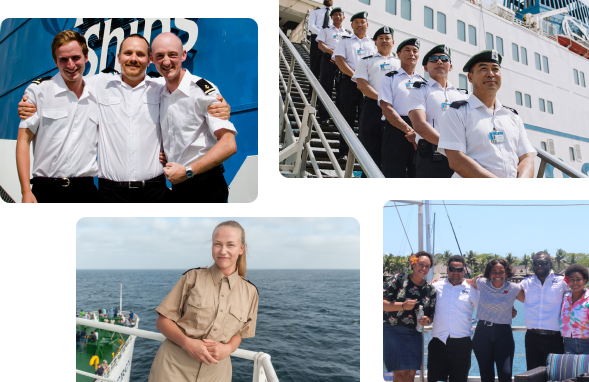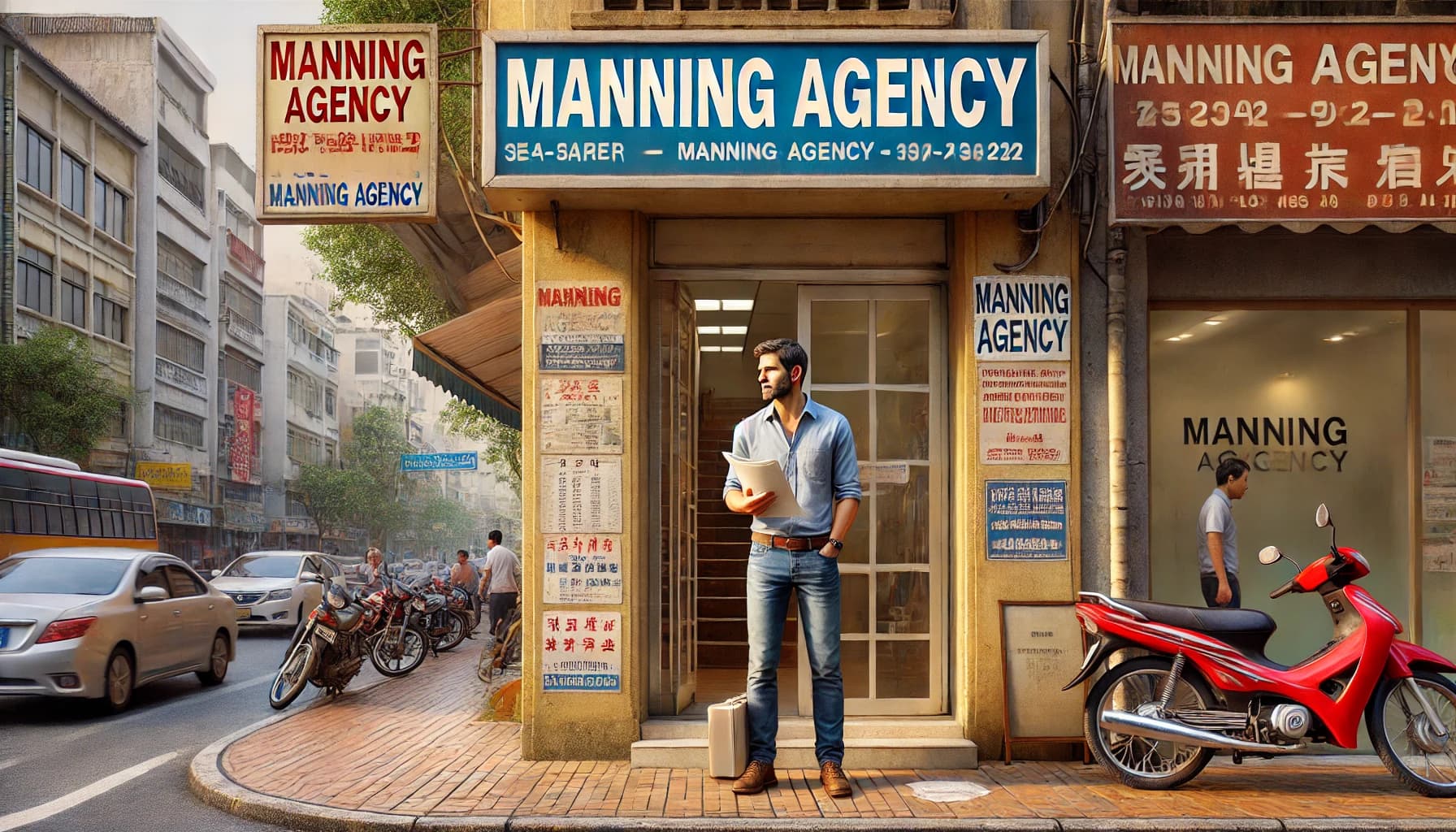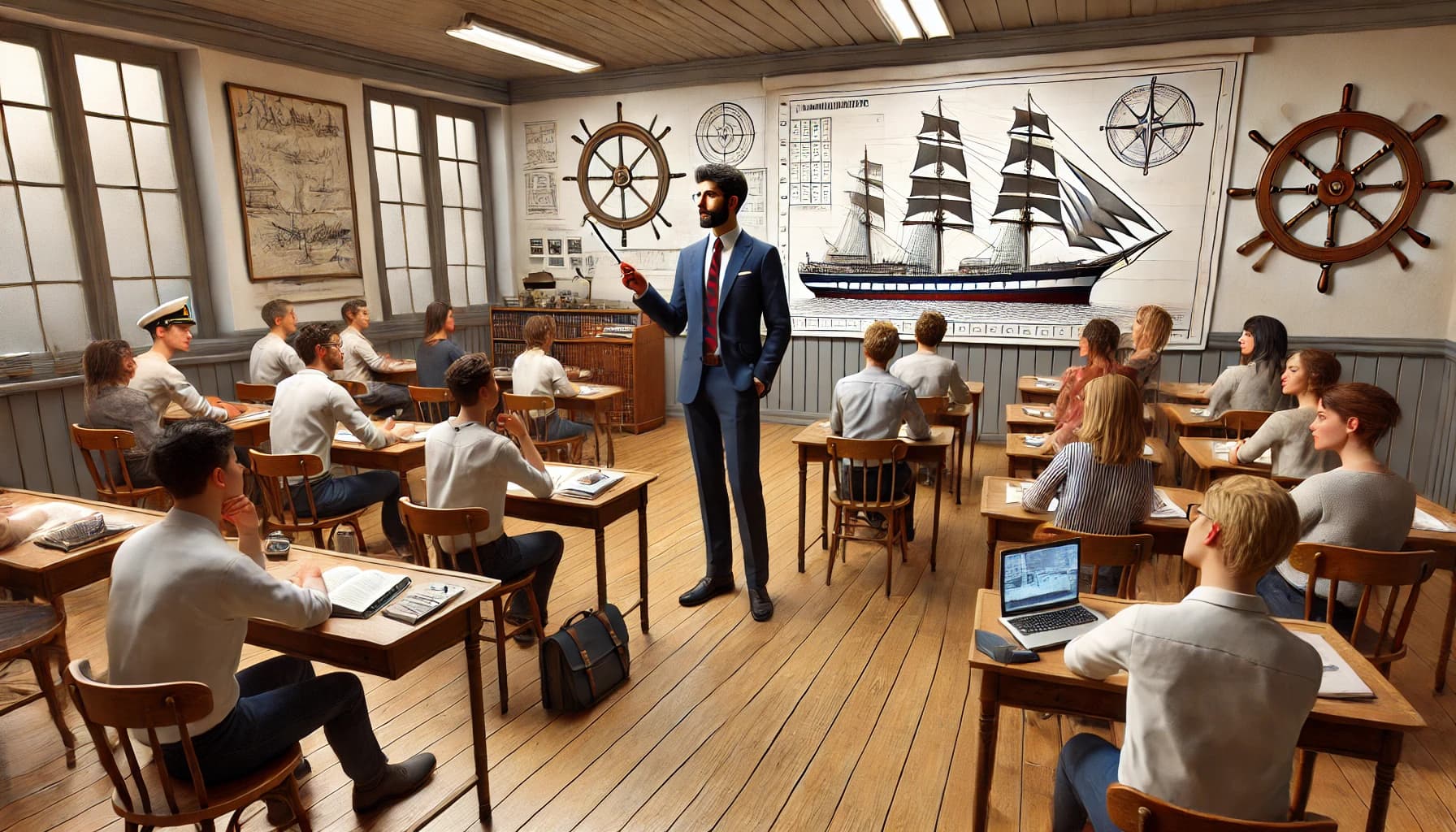Why Lying on Your Seafarer Resume Will Always Backfire
Apr 27, 2020 · 11 mins read ·
Job Seeker Tips
Lying on a resume, any resume, is never a good idea, but lying on a seafarer resume in particular is a real no-no for anyone who wants to take their maritime career seriously.
The trouble with lying - or even just exaggerating - in job seeking scenarios is that if (and when) you get found out, it can have terrible consequences on your future.
There are a number of do’s and don’ts and things to include and things to leave out when writing a resume for a seafarer.
We’ll take a brief look at some of them later on in this post but for the most part, we’re going to look at why lies, half truths, almost truths and exaggerated facts are something that should really go on the ‘leave it out list.’
Don't be tempted to lie on your seafarer resume - here's why
Whether you’re looking for jobs at sea, or for jobs in ports and shipping offices you want to impress your potential employer enough to score an interview. And you then want to ace that face to face (or Skype or Zoom) meeting and win the job or be lined up for the contract.

But there is a big difference between impressing a potential employer in an honest fashion and telling ‘just a few white lies’ in order to make yourself sound like the better candidate.
Most of us like to think of ourselves as decent, honest, and hardworking people.
But the mistake many people often make in maritime resumes is thinking that telling fibs or half truths, or just exaggerating the facts a little is just helping you to win the job.
Don’t be fooled into making that mistake on YOUR seafarer resume.
Lies are lies and in an industry such as shipping even the smallest untruth can have lasting repercussions.
Because even if you think of yourself as being ‘as honest as the day is long’ as the old saying goes, a shipowner, ship manager or maritime recruitment agency won’t see it in quite the same light.

Put simply, it’s not worth the risk of ‘embellishing’ the truth, especially when applying for seafarer jobs. Why? Because at sea you MUST hold the qualifications and documents that you say you do.
Your seafarer documents must be valid (and real)
Any maritime recruitment agency or potential employer is going to want to see your seafarer documents, passport, visas, STCW qualifications, seaman’s book, and medical certificates. And they WILL check them.
That means if you’ve stated on your seafarer resume that you have passed the STCW Advanced Fire Fighting Course, but in reality you only hold the STCW Basic Safety Training Course, you’re not telling the truth. And the implications of that could be far more serious than just making you look foolish in a job interview.
Let’s say hypothetically you did manage to make it onto a vessel with your fake firefighting qualification and a fire actually did break out onboard. You’d obviously be one of the go-to crew members to help tackle the blaze.
But the reality is, you don’t really know how.
Not only would you be putting your life in danger, but also those of your fellow crew, as well as the safety of the vessel and her cargo.
Okay, fire fighting is a drastic example, but the same holds true for any falsehood that is included on a resume for a seafarer. It is very likely that you are going to come unstuck at some point - and the end results could spell disaster.
Read more: 10 Big Mistakes Not To Make in Your Seafarer Resume
Seafarer jobs are not the type of careers where you can make things up as you go along, winging it! Plus, you will need to demonstrate that you actually have copies of the seafarer documents and qualifications that you say you do.

What to do when looking for entry level cargo ship jobs
It can be a worry if you’re looking for entry level cargo ship jobs and you feel that you don’t have enough sea time or experience to put on your resume for a seafarer.
In these circumstances it can be a little tempting to, not lie, but exaggerate the truth to make up for what you see as your shortcomings so that you can compete with more experienced seamen.
One thing to remember is that if you are young and/or at the start of your maritime career a shipowner, ship manager or maritime recruitment agency won’t expect you to hold every qualification under the sun or to have racked up years of sea time.
Related: Tips for Finding Entry Level Cargo Ship Jobs
You’re applying for entry level ship jobs and employers know that and they will only expect you to have the usual experience, qualifications and documents.
In fact, overstating the truth will only ring alarm bells and make you stand out from the crowd - and not in a good way.

Imagine the scenario. Even if you include what you think is the tiniest of white lies on your seafarer resume, think what would happen if you do make it to an interview.
Let’s say you include something about the type of equipment you know how to use. But the problem is, that’s not actually true. Maybe you have an idea of how a certain type of engine works but you don’t really know the complete picture.
The person interviewing you at the shipping company or maritime recruitment agency asks you a question about that engine; it’s a fairly basic question - and you can’t answer it. Not only is that going to catch you out in your lie and be embarrassing, but it’s probably also going to cost you the job.
How to look good on a maritime resume without lying
Trust us when we say that honesty is always the best policy - especially when you’re looking for jobs at sea.
A prospective employer would much rather hire a candidate who has less experience yet who is honest about it and willing to learn, than someone who tries to lie their way onto a vessel.
And even if you do get hired, as we’ve covered, you WILL very likely get found out when it comes to putting that ‘fake’ knowledge into action.
And while you might be okay with living out the rest of the months of your contract feeling slightly embarrassed - what do you think the chances of you getting hired again are?
Instead place the emphasis on the experience, education, skills and qualifications that you do actually have. And that goes for whether you’re a cadet who is looking for entry level cargo ship jobs or you have all the sea time and experience in the world - but just fancy adding an extra ‘something’ to your seafarer resume!

But don’t be tempted to show off - whether you have the skills or not - no one likes a bighead! Just be honest and stay true to yourself.
The crucial thing to remember is that seafarer jobs run on a never-ending cycle of contracts. And if you want to ensure that companies keep on lining you up for their jobs, they’re going to need to know that they can trust you and that you are who you say you are.
How Martide can help you find jobs at sea
We know that writing a resume for a seafarer can take time and effort.
As we mentioned earlier in this article, there are so many things to make sure you include in a maritime resume - and just as many to avoid.
For example, you should try not to use clichés and overused words that will have a potential employer rolling their eyes. (Nearly everyone who applies for a job is a “team player!”)
Related: How to Write a Seafarer Resume for the Maritime Industry
You also need to make sure you don’t talk badly about your former or current employer as, surprise surprise, this won’t make them look bad, but will instead reflect badly on you.
It’s also a good idea to research the company you’re applying for jobs at sea with before you send them your maritime resume, if you haven’t worked for them before.

If you really want to take away the hassle of writing a resume for a seafarer and from applying for jobs at sea, we highly suggest you download the Martide app for seafarer jobs.
Our free app has been designed especially for seafarers and includes everything from entry level cargo ship jobs to vacancies for deck officers, and from cook and oiler jobs to marine chief engineer jobs. And everything else in between!
Once you’ve downloaded the app you will be able to quickly and easily create your seafarer profile (it’s just like an online resume for a seafarer!) and then apply for the jobs at sea that you’re interested in, just by hitting the Apply button.
What are you waiting for? Download the app now from Google Play or the App Store and we hope to see you onboard soon!

Eve Church
Eve is Martide's content writer, publishing regular posts on everything from our maritime recruitment and crew planning software to life at sea. Eve has been writing professionally for more than two decades, crafting everything from SEO-focused blog posts and website landing pages to magazine articles and corporate whitepapers.
UK

is the only site for maritime jobs



